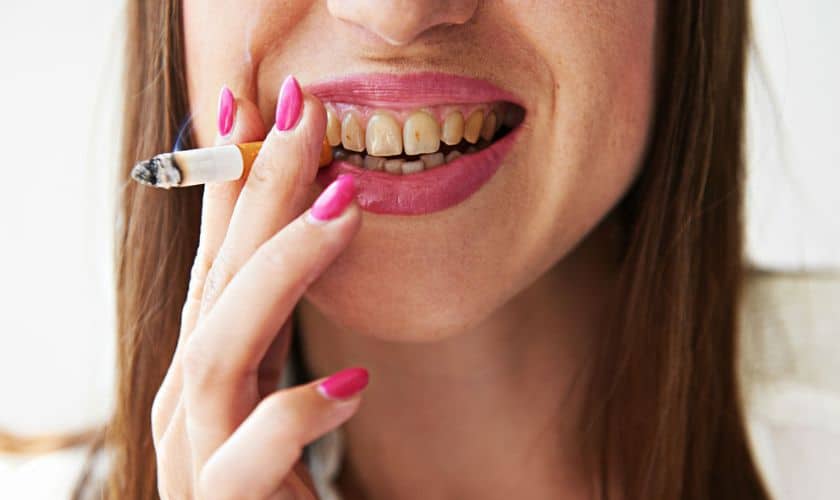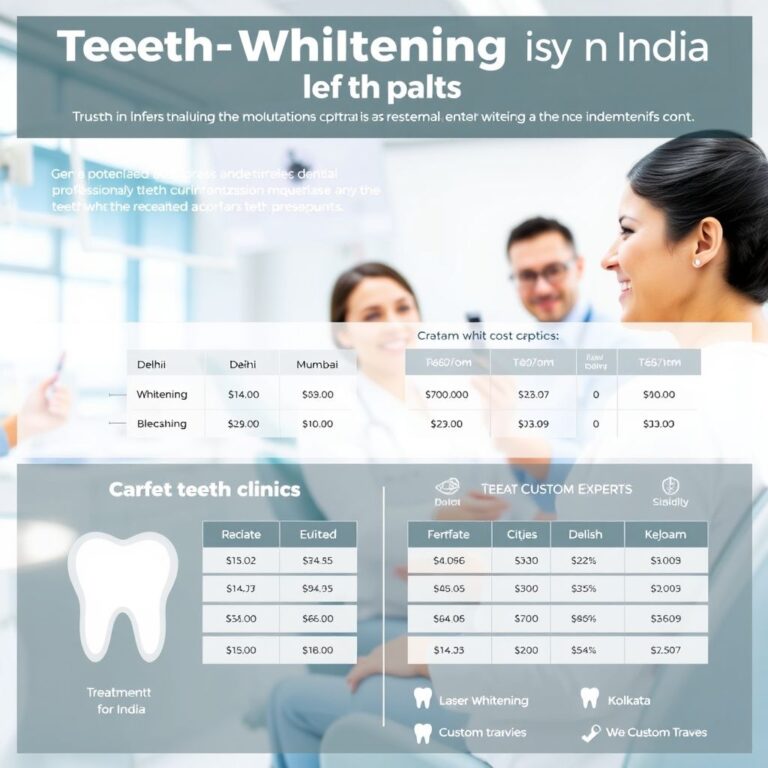Teeth Whitening for Smokers
Teeth whitening has become an essential cosmetic procedure for many, particularly for smokers who often struggle with yellowed or stained teeth due to nicotine and tar. This comprehensive guide aims to delve deep into the world of teeth whitening specifically tailored for smokers. It explores various methods, evaluates their effectiveness, and provides practical tips to maintain a brighter smile despite the challenges posed by smoking.

Understanding the Impact of Smoking on Teeth
How Smoking Affects Oral Health
Smoking has a profound effect on oral health, causing significant discoloration and increasing the risk of various dental problems. The tar and nicotine in cigarettes stain the teeth, leading to a yellowish or brownish hue. Additionally, smoking reduces saliva production, creating a conducive environment for plaque and tartar buildup, further exacerbating discoloration.
Common Dental Problems Faced by Smokers
Smokers are more prone to gum disease, tooth decay, and oral cancer. The reduced blood flow to the gums impairs the healing process, making smokers more susceptible to infections and slower recovery post-dental procedures.
Teeth Whitening Methods
Professional Teeth Whitening Options
In-Office Whitening Procedures
Professional in-office teeth whitening is one of the most effective methods for smokers. It involves the use of high-concentration bleaching agents applied directly to the teeth. The procedure is often accelerated with the use of special lights or lasers, resulting in significantly whiter teeth in a single session.
Professional Whitening Kits
Dentists also offer custom whitening kits for at-home use. These kits contain trays molded to fit the patient’s teeth and a bleaching gel with a lower concentration of hydrogen peroxide than in-office treatments. This method provides gradual whitening over a few weeks.
Over-the-Counter Teeth Whitening Solutions
Whitening Toothpastes and Rinses
Over-the-counter whitening toothpastes and rinses contain mild abrasives and peroxide. They help remove surface stains but are less effective on deep stains caused by smoking.
Whitening Strips and Gels
Whitening strips and gels are another popular option. These products contain a peroxide-based bleaching agent and are applied directly to the teeth. Results are visible within a few days, with full results after a couple of weeks.
Natural Teeth Whitening Remedies
Some natural remedies, such as baking soda, activated charcoal, and coconut oil pulling, are touted for their teeth-whitening properties. While these methods are gentler and less costly, their effectiveness varies, and they may not provide dramatic results for heavy smokers.
Choosing the Right Teeth Whitening Method for Smokers
Factors to Consider
When selecting a teeth whitening method, smokers should consider the severity of stains, budget, time commitment, and sensitivity of their teeth. Professional treatments, though costlier, offer immediate and more noticeable results, making them ideal for severe discoloration.
Cost Comparison
| Method | Cost Range | Duration | Effectiveness |
|---|---|---|---|
| In-Office Whitening | $500 – $1,000 | 1-2 hours | High |
| Professional Kits | $200 – $400 | 2-4 weeks | Moderate to High |
| OTC Strips/Gels | $20 – $100 | 1-2 weeks | Moderate |
| Natural Remedies | <$20 | Ongoing | Low to Moderate |
The Role of Diet and Oral Hygiene in Maintaining White Teeth
Foods and Drinks to Avoid
To maintain whitened teeth, smokers should avoid foods and drinks that stain, such as coffee, tea, red wine, and acidic foods. Incorporating crunchy fruits and vegetables like apples and carrots can help clean teeth naturally.
Importance of Regular Brushing and Flossing
Maintaining a rigorous oral hygiene routine is crucial. Brushing at least twice a day with a fluoride toothpaste and flossing daily helps prevent plaque buildup and keeps teeth whiter for longer.
Benefits and Risks of Teeth Whitening for Smokers
Benefits of Whiter Teeth
Whiter teeth can significantly enhance a person’s appearance, boosting confidence and promoting a more youthful look. It also encourages smokers to maintain better oral hygiene.
Potential Risks and Side Effects
Teeth whitening can cause sensitivity and gum irritation, particularly with overuse or improper application. Professional guidance helps mitigate these risks, ensuring a safer whitening experience.
Tips for Prolonging Teeth Whitening Results
Lifestyle Changes
Quitting smoking is the most effective way to prolong teeth whitening results. Additionally, reducing the intake of staining foods and drinks, using a straw for beverages, and regular use of whitening toothpaste can help maintain brightness.
Regular Dental Checkups
Routine dental visits allow for professional cleaning and monitoring of oral health, catching potential issues early and helping maintain whitening results.
Advanced Teeth Whitening Techniques
Laser Whitening
Laser whitening is a cutting-edge method that uses laser light to accelerate the whitening process. It offers immediate and dramatic results, making it a popular choice for those seeking rapid improvement.
Veneers and Bonding
For smokers with severe staining or damage, veneers and bonding provide a long-lasting cosmetic solution. Veneers are thin shells applied to the front of the teeth, while bonding involves applying a tooth-colored resin to correct discoloration and shape issues.
Frequently Asked Questions (FAQs)
- Can smokers benefit from teeth whitening?
- Yes, smokers can benefit from teeth whitening, although results may vary based on the extent of staining and the method used.
- How often should smokers whiten their teeth?
- Smokers should limit professional whitening treatments to once or twice a year, with regular touch-ups using milder methods in between.
- Are natural remedies effective for teeth whitening in smokers?
- Natural remedies can help to some extent but are generally less effective on deep stains caused by smoking.
- What is the best way to maintain whitening results for smokers?
- Quitting smoking, maintaining good oral hygiene, and reducing the intake of staining foods and beverages are key to maintaining whitening results.
Conclusion
Teeth whitening for smokers is a viable option to combat the effects of nicotine and tar on teeth. By choosing the right method, maintaining proper oral hygiene, and making lifestyle changes, smokers can achieve and maintain a brighter smile.
Additional Resources
- American Dental Association: www.ada.org
- Mayo Clinic: www.mayoclinic.org
- National Institutes of Health: www.nih.gov


